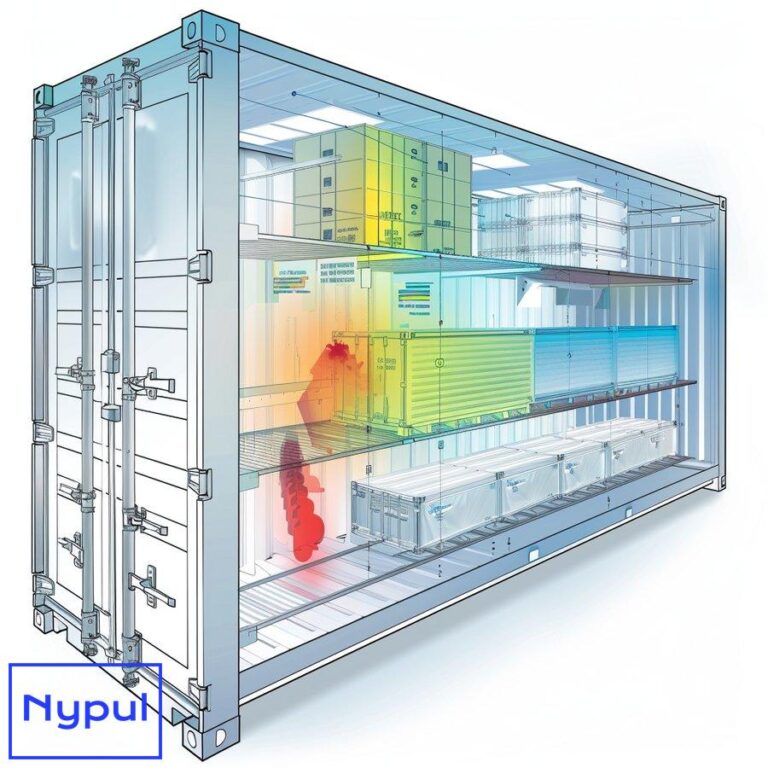What Is the Best Company to Get CDL Training
What are the different types of CDL training programs available?
Commercial Driver’s License (CDL) training programs come in various formats to accommodate different learning styles, schedules, and career goals. Understanding these options helps aspiring truck drivers choose the best path for their needs.
Private truck driving schools
Private truck driving schools offer comprehensive CDL training programs designed to prepare students for their CDL exams and entry-level driving positions. These schools typically provide:
- Classroom instruction on trucking regulations, safety procedures, and industry knowledge
- Hands-on training with commercial vehicles on closed courses and public roads
- Assistance with CDL permit and license testing
- Job placement services upon program completion
Private schools often have flexible scheduling options, including full-time, part-time, and weekend classes. However, tuition costs can be significant, ranging from $3,000 to $7,000 or more.
Company-sponsored CDL training
Many large trucking companies offer their own CDL training programs as a way to recruit and train new drivers. These programs typically include:
- Free or low-cost tuition in exchange for a work commitment
- On-site training facilities and equipment
- Guaranteed job placement upon successful completion
- Potential for earning income during training
Company-sponsored programs often have shorter durations than private schools, lasting 3-8 weeks on average. However, they may require students to sign contracts agreeing to work for the sponsoring company for a set period after graduation.
Community college CDL programs
Some community colleges and technical schools offer CDL training as part of their vocational education programs. These programs generally provide:
- Accredited coursework that may be eligible for financial aid
- Access to campus resources and facilities
- Potential for earning college credits
- Longer program durations, often spanning a full semester
Community college programs can be more affordable than private schools but may have limited enrollment and less flexible scheduling options.
Online CDL training courses
While hands-on training is essential for obtaining a CDL, some providers offer online courses to supplement in-person instruction or prepare students for the written CDL exam. Online CDL training typically includes:
- Self-paced learning modules covering CDL theory and regulations
- Practice tests and study materials
- Video demonstrations of vehicle inspections and driving techniques
- Lower costs compared to in-person programs
Online courses are best suited for self-motivated learners and those looking to supplement their practical training with additional study resources.
Apprenticeship programs
Some trucking companies and industry organizations offer apprenticeship programs that combine on-the-job training with classroom instruction. These programs often feature:
- Paid work experience while learning
- Structured progression of skills development
- Mentorship from experienced drivers
- Potential for earning industry certifications
Apprenticeships can provide a more gradual entry into the trucking industry and may be ideal for those seeking a long-term career path.
When choosing a CDL training program, consider factors such as cost, duration, job placement assistance, and your personal learning preferences. Each type of program has its advantages and potential drawbacks, so it’s essential to research and compare options before making a decision.
Which companies offer the best CDL training programs?
Selecting the right company for CDL training is crucial for aspiring truck drivers. Several companies stand out for their comprehensive programs, quality instruction, and strong industry reputations. Here’s an overview of some top-rated CDL training providers:
Prime Inc.
Prime Inc. offers one of the most respected company-sponsored CDL training programs in the industry. Their program features:
- No upfront costs for qualified applicants
- 4-5 weeks of intensive training at their Springfield, Missouri facility
- Combination of classroom instruction and hands-on driving experience
- Paid on-the-job training with experienced driver trainers
- Guaranteed job placement upon successful completion
Prime’s program is known for its thorough curriculum and modern training fleet. They also provide lodging and meals during the training period, making it an attractive option for out-of-state students.
Schneider National
Schneider National’s CDL training program is highly regarded for its comprehensive approach and strong safety focus. Key features include:
- Company-sponsored training with no upfront costs
- 3-week program at one of several training locations nationwide
- Emphasis on defensive driving techniques and fuel efficiency
- Advanced simulator training to prepare for various driving conditions
- Competitive pay and benefits package upon program completion
Schneider’s program is particularly well-suited for those seeking a balance of classroom learning and practical skills development.
Roehl Transport
Roehl Transport offers a unique “Get Your CDL” program that combines paid CDL training with immediate job placement. Program highlights include:
- Earn while you learn approach, with pay starting from day one
- 3-5 weeks of training, depending on prior experience
- Multiple training locations across the United States
- Focus on practical skills and safe driving practices
- Choice of regional or OTR (over-the-road) positions after graduation
Roehl’s program is ideal for those who want to start earning quickly while gaining their CDL.
C.R. England
C.R. England’s CDL training program is known for its comprehensive curriculum and strong support system. Key features include:
- Company-sponsored training with tuition reimbursement options
- 2-3 weeks of intensive training at dedicated facilities
- Advanced technology integration, including virtual reality simulations
- Mentorship program pairing new drivers with experienced professionals
- Specialized training for refrigerated and intermodal transportation
C.R. England’s program is well-suited for those interested in specialized trucking sectors and looking for ongoing career development opportunities.
Swift Transportation
Swift Transportation offers a robust CDL training program that caters to both experienced drivers and newcomers to the industry. Program highlights include:
- Multiple training options, including company-sponsored and tuition reimbursement
- 3-4 weeks of training at Swift Academy locations
- Combination of classroom, range, and on-road instruction
- Focus on technology and efficiency in modern trucking operations
- Variety of career paths and equipment types available post-graduation
Swift’s program is known for its flexibility and ability to accommodate drivers with different experience levels and career goals.
Comparison of Top CDL Training Programs
| Company | Program Duration | Cost | Job Placement | Unique Features |
|---|---|---|---|---|
| Prime Inc. | 4-5 weeks | No upfront cost | Guaranteed | Paid on-the-job training |
| Schneider National | 3 weeks | Company-sponsored | Yes | Advanced simulator training |
| Roehl Transport | 3-5 weeks | Paid from day one | Immediate | Choice of regional or OTR |
| C.R. England | 2-3 weeks | Tuition reimbursement | Yes | VR simulations, mentorship |
| Swift Transportation | 3-4 weeks | Multiple options | Yes | Diverse career paths |
When evaluating these and other CDL training programs, consider factors such as program duration, cost, job placement assistance, and alignment with your career goals. It’s also beneficial to read reviews from former students and research each company’s safety record and industry reputation. Remember that the best program for you will depend on your individual circumstances, learning style, and long-term career aspirations in the trucking industry.
How do CDL training programs compare in terms of curriculum and duration?

CDL training programs vary significantly in their curriculum content and duration. Understanding these differences is crucial for prospective students to choose a program that aligns with their learning needs and career goals.
Curriculum Components
Most CDL training programs cover the following core areas:
Classroom Instruction
Classroom sessions typically focus on:
- Federal and state trucking regulations
- Hours of service rules and logbook maintenance
- Vehicle systems and components
- Defensive driving techniques
- Hazardous materials handling (for those pursuing HazMat endorsement)
- Trip planning and map reading
The depth and breadth of classroom instruction can vary significantly between programs. Some may offer more extensive coverage of industry-specific topics or include additional certifications.
Range Training
Range training takes place in a controlled environment and covers:
- Vehicle inspection procedures
- Basic maneuvering (straight line backing, alley docking, parallel parking)
- Coupling and uncoupling trailers
- Shifting techniques for manual transmissions
Programs differ in the amount of time allocated to range training and the variety of maneuvers practiced.
Road Training
On-road training provides real-world driving experience and typically includes:
- City and highway driving
- Mountain driving (where applicable)
- Night driving
- Adverse weather condition driving
The extent of road training can vary greatly, with some programs offering more extensive on-road experience than others.
Program Duration
CDL training program durations can range from a few weeks to several months. Here’s a general breakdown:
Short-term programs (3-4 weeks)
- Intensive, full-time training
- Focused on essential skills for passing the CDL exam
- Limited time for in-depth knowledge or extensive practice
- Often offered by company-sponsored programs
Medium-term programs (6-8 weeks)
- More comprehensive coverage of trucking topics
- Additional time for hands-on practice and skill refinement
- May include job placement assistance and career guidance
- Typical of many private truck driving schools
Long-term programs (3-6 months)
- In-depth coverage of all aspects of trucking
- Extensive hands-on training and real-world experience
- May include additional certifications or specialized training
- Often found in community college or vocational school settings
Curriculum and Duration Comparison
| Program Type | Classroom Hours | Range Hours | Road Hours | Total Duration |
|---|---|---|---|---|
| Short-term | 40-60 | 20-30 | 20-30 | 3-4 weeks |
| Medium-term | 80-100 | 40-60 | 40-60 | 6-8 weeks |
| Long-term | 120+ | 80+ | 80+ | 3-6 months |
Factors Influencing Program Length
Several factors can impact the duration and curriculum depth of CDL training programs:
State Requirements
Different states have varying minimum training hour requirements for CDL programs. Programs must meet or exceed these standards to be approved.
Company Policies
Company-sponsored programs may have shorter durations to get drivers on the road quickly, while emphasizing continued on-the-job training.
School Philosophy
Some schools prioritize a thorough, comprehensive approach, while others focus on efficient, targeted training for quick entry into the workforce.
Student Progress
Programs may allow for some flexibility in duration based on individual student progress and skill acquisition.
When comparing CDL training programs, consider how the curriculum and duration align with your learning style, schedule constraints, and career objectives. A longer program may provide more in-depth knowledge and practice, but a shorter, intensive program could get you on the road earning sooner. Evaluate the trade-offs between program length, depth of instruction, and your personal circumstances to make the best choice for your trucking career.
What are the financial aspects of company-sponsored CDL training?
Company-sponsored CDL training programs offer an attractive option for aspiring truck drivers who may not have the upfront capital to pay for private truck driving schools. However, these programs come with their own set of financial considerations that potential students should carefully evaluate.
Tuition and Training Costs
The primary appeal of company-sponsored CDL training is the reduced or eliminated upfront costs. Most programs offer one of the following financial arrangements:
Free Training
Some companies cover all costs associated with CDL training, including:
- Tuition fees
- Learning materials
- CDL permit and license fees
- Room and board during training (in some cases)
This option allows students to obtain their CDL without any initial financial investment.
Tuition Reimbursement
Other companies may require students to pay for training initially but offer reimbursement plans:
- Full reimbursement upon successful completion of the program and a set period of employment
- Partial reimbursement based on length of employment or performance metrics
- Gradual reimbursement through payroll deductions over time
Low-Cost Training
Some programs offer reduced-cost training compared to private schools:
- Students pay a portion of the training costs upfront
- Remaining costs are covered by the company or reimbursed over time
Employment Contracts
In exchange for free or reduced-cost training, most company-sponsored programs require students to sign employment contracts. These contracts typically include:
- Commitment to work for the sponsoring company for a set period (usually 6-12 months)
- Prorated repayment of training costs if the contract is not fulfilled
- Specific performance or safety standards that must be maintained
It’s crucial to carefully review these contracts and understand the financial implications of breaking them before committing to a program.
Earning Potential During and After Training
Company-sponsored CDL training can impact your earning potential in several ways:
Training Pay
Some programs offer compensation during the training period:
- Hourly wages for classroom and behind-the-wheel instruction
- Reduced pay rates compared to experienced drivers
- Potential for performance-based bonuses or incentives
Starting Salary
Upon completion of training and obtaining a CDL, new drivers typically start at an entry-level salary:
- Pay rates may be lower than industry averages for experienced drivers
- Opportunity for salary increases based on performance and experience
- Potential for sign-on bonuses or other incentives
Long-Term Earning Potential
While initial salaries may be lower, company-sponsored training can lead to long-term financial benefits:
- Job security with the sponsoring company
- Opportunities for advancement within the organization
- Access to additional training and certifications at reduced or no cost
Financial Comparison: Company-Sponsored vs. Private CDL Training
| Aspect | Company-Sponsored | Private School |
|---|---|---|
| Upfront Costs | $0 – $1,500 | $3,000 – $7,000+ |
| Training Duration | 3-8 weeks | 4-16 weeks |
| Employment Contract | Required (6-12 months) | Not required |
| Starting Salary | $35,000 – $45,000/year | Varies by employer |
| Job Placement | Guaranteed | Not guaranteed |
| Long-Term Flexibility | Limited initially | More options immediately |
Hidden Costs and Considerations
When evaluating company-sponsored CDL training programs, be aware of potential hidden costs:
Relocation Expenses
If the training facility is not local, you may need to cover:
- Transportation to and from the training site
- Temporary housing (if not provided by the company)
- Meals and incidental expenses during training
Opportunity Cost
Consider the potential income lost by attending an unpaid or low-paid training program:
- Compare to alternative employment options
- Factor in the long-term earning potential of a trucking career
Equipment and Supplies
Some programs may require students to purchase:
- Specific clothing or safety gear
- Study materials or practice tests
- Health certifications or background checks
When considering company-sponsored CDL training, carefully weigh the financial benefits against the contractual obligations and potential hidden costs. While these programs can provide a cost-effective path to obtaining your CDL, it’s essential to understand the full financial picture before committing. Consider your long-term career goals, financial situation, and willingness to commit to a specific company when making your decision.
How do training facilities and equipment quality impact your learning experience?
The quality of training facilities and equipment plays a crucial role in shaping the learning experience and overall effectiveness of CDL training programs. Well-equipped facilities and modern vehicles can significantly enhance skill development, safety awareness, and job readiness for aspiring truck drivers.
Classroom Facilities
Effective classroom environments contribute to better learning outcomes:
Technology Integration
Modern classrooms should feature:
- Interactive whiteboards or digital displays
- Computer workstations for individual study
- Audio-visual equipment for multimedia presentations
These technologies enhance engagement and allow for diverse learning methods.
Comfort and Ergonomics
Well-designed classrooms promote focus and retention:
- Comfortable seating with good back support
- Proper lighting and temperature control
- Adequate space for group discussions and individual work
Learning Resources
Access to comprehensive learning materials is essential:
- Up-to-date textbooks and study guides
- Online learning platforms and resources
- Industry publications and reference materials
Practical Training Areas
Dedicated spaces for hands-on training are vital for skill development:
Driving Range
A well-designed driving range should include:
- Ample space for maneuvering large vehicles
- Various backing and parking scenarios
- Simulated loading docks and weigh stations
Vehicle Inspection Area
Proper inspection training requires:
- Well-lit spaces for thorough vehicle examinations
- Variety of truck and trailer types for comprehensive learning
- Tools and equipment for hands-on inspection practice
Simulation Technology
Advanced training programs may offer:
- Virtual reality (VR) simulators for diverse driving scenarios
- Computer-based simulation for logbook and trip planning practice
Training Fleet
The quality and variety of vehicles in the training fleet significantly impact learning:
Vehicle Types
A diverse fleet allows students to experience different trucking scenarios:
- Dry vanVehicle Types
A diverse fleet allows students to experience different trucking scenarios:
- Dry van trailers for general freight
- Flatbed trucks for specialized loads
- Refrigerated trailers for temperature-sensitive cargo
- Tanker trucks for liquid transportation
Condition of Vehicles
The maintenance and condition of training vehicles are critical:
- Well-maintained vehicles ensure safety during training
- Modern equipment with advanced safety features enhances learning
- Availability of manual and automatic transmission options caters to various student preferences
Instructor Qualifications
The effectiveness of training facilities is also influenced by the qualifications of instructors:
Experience and Expertise
Instructors should possess:
- Extensive industry experience, ideally as former truck drivers
- Relevant certifications and endorsements (e.g., HazMat, tanker)
- Strong communication skills to effectively convey complex concepts
Supportive Learning Environment
Instructors play a crucial role in fostering a positive learning atmosphere:
- Encouragement and constructive feedback help build student confidence
- Patience and understanding are essential for diverse learning paces
Impact on Learning Experience
The quality of training facilities and equipment directly affects several aspects of the learning experience:
Skill Development
High-quality facilities and equipment enable students to:
- Gain hands-on experience with real-world scenarios
- Develop confidence in their driving abilities
- Master vehicle inspection and maintenance procedures
Safety Awareness
Proper training environments contribute to a strong safety culture:
- Emphasis on safe driving practices reduces accident risks
- Realistic simulations prepare students for various road conditions
Job Readiness
Ultimately, well-equipped training programs enhance job readiness:
- Comprehensive training prepares students for the challenges of the trucking industry
- Positive experiences boost employability and career prospects
When evaluating CDL training programs, consider the quality of facilities and equipment as a key factor. A well-designed training environment with modern vehicles and experienced instructors significantly enhances the overall learning experience, ensuring that students are well-prepared for their future careers in trucking.
What support services are provided during CDL training?
Support services play a vital role in ensuring that students have a positive and productive experience during their CDL training. These services can vary by program but generally include academic, financial, and career support designed to help students succeed.

Academic Support Services
Many CDL training programs offer academic support to enhance student learning:
Tutoring Programs
Some schools provide access to tutoring services, including:
- One-on-one sessions with instructors or peer tutors
- Study groups focused on challenging topics
- Online resources for additional practice and review
Learning Resources
Access to comprehensive learning materials is crucial:
- Textbooks, manuals, and online courses covering CDL topics
- Practice tests for the written portion of the CDL exam
- Tools for vehicle inspection practice
Mentorship Opportunities
Mentorship programs can connect students with experienced drivers who offer guidance and advice. Benefits include:
- Insights into real-world trucking experiences
- Networking opportunities within the industry
- Support in navigating challenges during training
Financial Support Services
Financial considerations are often a concern for aspiring truck drivers. Many programs provide financial support services such as:
Financial Aid Counseling
Students may receive assistance in exploring financial aid options, including:
- Grants, scholarships, or loans available for CDL training
- Information on company-sponsored programs that cover tuition costs
- Budgeting advice to manage living expenses during training
Payment Plans
Some schools offer flexible payment plans that allow students to spread out tuition costs over time. This can include:
- Monthly installment options for tuition fees
- Deferred payment plans based on employment contracts with sponsoring companies
Career Support Services
Career support services are essential for helping students transition from training to employment. These services may include:
Job Placement Assistance
Many CDL training programs offer job placement services to connect graduates with potential employers. This can involve:
- Resume writing workshops tailored for trucking positions
- Interview preparation sessions with industry professionals
- Job fairs featuring multiple trucking companies seeking new drivers
Networking Opportunities
Networking is crucial in the trucking industry. Programs may facilitate connections through:
- Alumni networks that provide ongoing support and job leads
- Industry events or conferences where students can meet potential employers
- Partnerships with local trucking companies looking to hire graduates
Impact on Student Success
The availability of support services significantly impacts student success rates in CDL training programs. Students who utilize these resources often experience:
Higher Pass Rates
Access to academic support services increases the likelihood of passing written exams and obtaining a CDL.
Improved Job Placement Rates
Programs that offer robust job placement assistance typically see higher employment rates among graduates.
Enhanced Confidence and Preparedness
Students who receive mentorship and guidance feel more confident entering the workforce, leading to better job performance.
When evaluating CDL training programs, consider the availability and quality of support services offered. A program that prioritizes student success through comprehensive academic, financial, and career support can make a significant difference in your overall experience and future career prospects.
What career opportunities are available after completing CDL training?
Completing a CDL training program opens up various career opportunities within the trucking industry. The demand for qualified truck drivers continues to grow, providing numerous pathways for new graduates.
Types of Trucking Jobs Available
Upon obtaining a CDL, graduates can explore several types of trucking jobs based on their interests and qualifications. Common career paths include:
Long-Haul Trucking (OTR)
Long-haul truck drivers transport goods across state lines or even nationwide. Key features include:
- Extended periods away from home (typically 1-3 weeks)
- Higher earning potential due to longer distances traveled
- Opportunities to see different regions of the country
Regional Trucking
Regional truck drivers operate within specific geographic areas, allowing them to return home more frequently. Characteristics include:
- Shorter routes compared to long-haul trucking (typically 1,000 miles or less)
- More predictable schedules with regular home time
- Potentially higher pay per mile due to shorter distances covered
Local Trucking
Local truck drivers operate within a specific city or region, often working for businesses that require frequent deliveries. Benefits include:
- Consistent daily schedules with minimal overnight travel
- Opportunities for building relationships with local clients
- Generally lower stress levels due to shorter routes
Specialized Trucking Opportunities
Graduates may also pursue specialized trucking jobs that require additional endorsements or skills. Some examples include:
Refrigerated Freight (Reefer)
Drivers transporting temperature-sensitive goods must be trained in handling refrigerated trailers. Key points include:
- Knowledge of temperature control systems
- Understanding regulations regarding food safety
- Higher pay rates due to specialized skills
Hazardous Materials (HazMat)
Drivers who transport hazardous materials must obtain a HazMat endorsement on their CDL. Requirements include:
- Completing specialized training on handling dangerous goods
- Adhering to strict safety regulations
- Potentially higher salaries due to increased responsibility
Owner Operator Opportunities
After gaining experience as a company driver, some individuals choose to become owner operators. This path involves purchasing or leasing a truck and operating independently. Considerations include:
Increased Earning Potential
Owner operators have greater control over their income by setting their rates and choosing their loads.
Business Management Responsibilities
Running an independent trucking business requires knowledge of logistics, accounting, and regulatory compliance.
Career Advancement Options
As drivers gain experience in the industry, they may have opportunities for advancement into various roles such as:
Fleet Manager
Experienced drivers can transition into fleet management positions overseeing operations within trucking companies.
Driver Trainer
Qualified drivers may become trainers themselves, sharing their knowledge with new recruits.
Job Market Outlook
The demand for qualified truck drivers is expected to remain strong due to factors such as e-commerce growth and supply chain challenges. According to industry reports, there is a projected shortage of truck drivers in the coming years, making this an opportune time for new graduates entering the field.
When considering career opportunities after completing CDL training, evaluate your interests in different types of driving jobs, specialization options, and potential advancement paths within the industry. With dedication and skill development, you can build a successful career in trucking.
How can you evaluate student experiences and company reputations?
Evaluating student experiences and company reputations is essential when selecting a CDL training program. Understanding how former students perceive their education can provide valuable insights into what you might expect from your own experience.
Researching Student Experiences
Several methods can help you gather information about student experiences at various CDL training schools:
Online Reviews and Testimonials
Websites such as Google Reviews or Yelp often feature reviews from former students discussing their experiences. Look for comments regarding:
- Quality of instruction
- Facilities and equipment
- Job placement assistance
Pay attention to both positive feedback and negative critiques; consistent themes will give you a clearer picture of what to expect.
Social Media Groups
Joining social media groups focused on trucking or CDL training can provide firsthand accounts from current or former students. Engaging with these communities allows you to ask questions directly about specific programs.
Alumni Networks
Many reputable trucking schools maintain alumni networks that facilitate connections among graduates. Reaching out to alumni can yield insights into their experiences post-graduation regarding job placement success rates and overall satisfaction with their education.
Company Reputation Assessment
In addition to evaluating individual schools, assessing the reputation of sponsoring companies is crucial if considering company-sponsored programs. Factors influencing company reputation include:
Industry Standing
Research each company’s standing within the trucking industry by examining factors such as:
- Safety records
- Compliance history
- Financial stability
Industry publications often feature rankings or reports detailing these aspects.
Employee Reviews
Websites like Glassdoor or Indeed provide employee reviews where current or former drivers share their experiences working for specific companies. Key points to consider include:
- Work-life balance
- Compensation packages
- Company culture
Networking
Connecting with current truck drivers through professional networking platforms like LinkedIn can provide valuable insights into different companies’ reputations from those actively working in the field.
Evaluating Training Program Outcomes
Another important aspect when assessing student experiences is evaluating program outcomes such as graduation rates or job placement statistics. Consider asking prospective schools about their metrics related to these areas before making a decision.
Conclusion
Thoroughly researching student experiences alongside company reputations will empower you when selecting a CDL training program that aligns with your goals. By gathering information from multiple sources—such as online reviews, alumni networks, industry publications—you’ll be better equipped to make an informed choice about your future in trucking.
What factors should you consider when choosing a CDL training company?

Selecting the right CDL training company is critical for aspiring truck drivers aiming for successful careers in the industry. Several factors should be carefully evaluated before making this important decision.
Accreditation and Licensing
Ensure that any school you consider holds proper accreditation from relevant state agencies or organizations such as the Professional Truck Driver Institute (PTDI). Accreditation guarantees adherence to established educational standards essential for effective learning outcomes.
Curriculum Quality
Review each program’s curriculum thoroughly; it should cover essential topics like federal regulations, vehicle operation techniques, safety practices—among others—while also providing ample hands-on practice opportunities both on range areas as well as public roads.
Instructor Qualifications
Assess instructor qualifications by looking into their backgrounds; experienced instructors who possess relevant certifications will provide quality education while fostering supportive learning environments conducive towards skill development.
Training Facilities
Evaluate facilities where classes will be conducted; modern classrooms equipped with technology enhance engagement while well-maintained vehicles ensure safety during practical exercises—both contributing positively towards overall student experiences throughout their education journey.
Financial Considerations
Consider all financial aspects associated with each program including tuition costs versus potential earnings after graduation; inquire about available financial aid options such as scholarships or grants which might alleviate some burden associated with attending school full-time.
Job Placement Assistance
Investigate whether prospective schools offer job placement assistance upon graduation; strong connections between educational institutions & local employers increase chances of securing employment soon after completing your studies—this factor alone could significantly impact long-term career success!
Student Support Services
Evaluate any additional support services provided by schools including academic tutoring programs & mentorship opportunities; these resources could prove invaluable during challenging moments throughout your educational journey—ensuring you remain focused & motivated towards achieving your goals!
Company Reputation (if applicable)
If considering company-sponsored programs take time assessing each company’s reputation within the industry; look into safety records compliance history employee reviews—this information will help gauge whether they align closely enough with personal values before committing yourself fully!
Conclusion
By carefully considering these factors when choosing a CDL training company you’ll be better positioned towards finding one that meets both educational needs while also aligning closely enough with long-term career aspirations! Take time conducting thorough research before making any decisions—it’ll pay off immensely down road!
What are the prerequisites and preparation steps for CDL training?
Before embarking on your journey toward obtaining a Commercial Driver’s License (CDL), it’s essential first understand prerequisites along preparation steps necessary ensure smooth transition into formalized education process! Here’s what aspiring truck drivers need know before enrolling in any programs available today!
Age Requirements
Most states require individuals seeking CDLs be at least 18 years old; however those wishing operate commercial vehicles across state lines must typically wait until reaching age 21! Ensure compliance local regulations prior commencing any coursework!
Valid Driver’s License
Possessing valid non-commercial driver’s license serves prerequisite all applicants pursuing CDLs; this ensures foundational knowledge operating motor vehicles already established before transitioning larger trucks!
Medical Examination
All prospective candidates must undergo medical examinations conducted by certified medical examiners listed under Federal Motor Carrier Safety Administration (FMCSA); passing results confirm physical fitness required safely operate commercial vehicles without risk injury themselves others while driving!
Background Check
Some companies may conduct background checks during application process including criminal history driving records; maintaining clean record enhances chances securing enrollment desired programs while also improving employability post-graduation!
Study Materials
Prior enrolling consider gathering study materials relevant topics covered during coursework including federal regulations vehicle operation techniques safety practices etc.; familiarizing oneself beforehand helps build confidence while ensuring readiness tackle challenging content presented throughout duration classes!
Practice Tests
Taking practice tests specifically designed around written portions associated obtaining CDLs provides insight into format questions likely encountered during actual exam—this preparation step aids retention knowledge gained throughout educational journey ultimately leading successful completion required assessments necessary achieving licensure!
Conclusion

Choosing appropriate path toward obtaining Commercial Driver’s License involves careful consideration multiple factors ranging from types available programs offered through financial implications associated each option selected! By thoroughly researching various aspects discussed within this article—including evaluating student experiences assessing company reputations comparing curricula durations—you’ll be well-equipped make informed decisions leading successful careers within thriving trucking industry!






